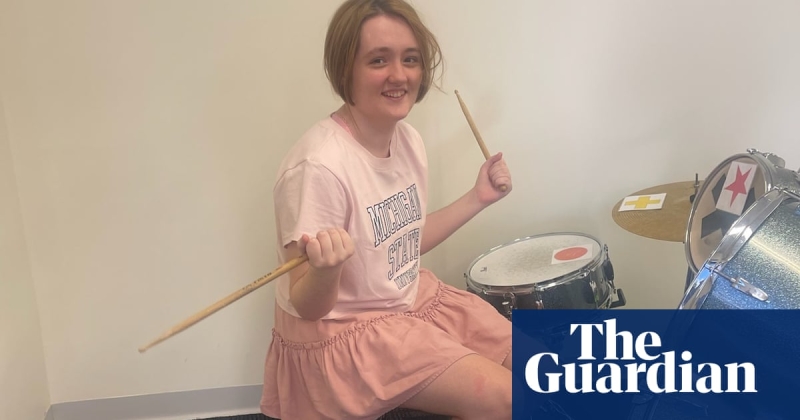Out of 776 responders to our callout, 711 say they experienced withdrawal symptoms, many debilitating
When Jade’s relationship ended at 24, she felt anxious, depressed and was suffering from stress-induced insomnia. She was prescribed antidepressants, but they didn’t seem to help and instead made her feel numb. When Jade told her GP that they made her feel “really blank inside”, the dose was doubled and she was prescribed different classes of antidepressants.
The new drugs “made me feel an impending sense of doom,” Jade says. She gradually stopped taking them and describes the withdrawal effects she suffered as the “worst experience of my life”.
“Imagine feeling like you would never be happy again,” she says. “I wrote a suicide note, I flew to another city on my lunch break from work, I ended up in emergency. I have family members who still don’t talk to me to this day as a result.” She says she had never felt suicidal before taking the medication.
Fifteen years after this experience, Jade was diagnosed with ADHD and prescribed a different type of medication. She is one of hundreds of Australians to detail their experiences of withdrawing from antidepressant medications in response to a callout from Guardian Australia. Of the 776 readers who wrote in, 711 said they experienced withdrawal effects, with many describing debilitating symptoms.
The most common symptoms described included brain zaps, headaches, anxiety, mood swings, fatigue, dizziness, nausea, insomnia, confusion, difficulty concentrating, flu-like symptoms and heightened sensitivity to stimuli such as touch and noise.
The callout specifically asked people to share whether they experienced side effects when attempting to stop taking antidepressant medications, so responses were skewed towards those who struggled to come off the drugs. Many people manage to come off antidepressants without symptoms, but the response reveals why there have been growing calls for more information to be given to patients about how the drugs work and what may happen if they stop taking them and care has not been taken to slowly decrease the dose.
Australia has one of the highest rates of antidepressant use per capita in the world, yet 169 readers who responded to the callout indicated they were given no medical advice or guidance from qualified health professionals about stopping.
Others were told they would need to be on the drugs for life. Royal Australian College of General Practitioners (RACGP) president, Dr Nicole Higgins, says that while antidepressants are a helpful and effective treatment option for many people – several respondents told Guardian Australia the drugs were life saving – they are not generally advised for use for longer than six to 12 months. Long-term use should only be considered for those with recurrent depression and repeated, severe relapses after stopping, psychiatry guidelines say.
There were 308 respondents who said, overall, antidepressants helped them, and 281 who said they didn’t, with the rest unsure or not providing a clear answer.
Of those readers who told Guardian Australia that they did taper off the drugs under doctor supervision, many reported they were given only general guidance such as “reduce doses by degrees” or “go slowly” or to “half” their medication every two weeks or so.
This is in line with the general advice for stopping antidepressant medication, which advises patients to reduce daily doses by between 25% and 50% every week to four weeks. But in July, the RACGP endorsed the first evidence-based guidelines for tapering off antidepressants, called the Maudsley Deprescribing Guidelines. These advocate for a much slower tapering off approach than the traditional advice, depending on the type of antidepressant medication and time spent taking it.
Prof Katharine Wallis, who researches the safer use of medicines in general practice at the University of Queensland, says “the tide is turning, and there is growing awareness of the troubles people have coming off antidepressants”. But there are still too many doctors “conflating withdrawal symptoms with relapse of depression,” and a need for better GP, psychiatrist and patient education about safer de-prescribing, she says.
“The informed consent discussion when prescribing needs to include the information about how sometimes, the drugs can be very difficult to stop and can come with all the associated adverse effects and long-term risks.”
Wallis says there also needs to be a plan for coming off the drugs at the time of prescribing.
“I get a lot of patients coming in just requesting a repeat prescription, and when I ask them about it, they may say they’ve been on the medication for several years,” she says.
“I use this as an opportunity to raise this issue of withdrawal and safely stopping the medication. But patients are also very frightened of stopping because they might have been without their drugs for a day or two previously and felt so unwell from withdrawal they don’t want to try stopping again.”
But despite the importance of this, many readers, like Cait, say they were never informed of the risks of coming off the drugs too quickly. She says antidepressants made her feel worse, but because no doctor supported her when she said she wanted to come off them, she tried to stop on her own, cold turkey.
Withdrawal effects included “sweating, being cold, shaking, and nauseous”. “I can’t even express how sick I was,” she says.
“I couldn’t keep anything down – not even liquids. I was so thirsty. And the brain spasms – I can’t really describe the sensation, but it’s horrible. I barely slept for days. Nobody told me that the antidepressants were dependency forming … I am angry that I was robbed of the ability to give informed consent.”
Originally prescribed the drugs for major depression, she was later diagnosed with bipolar disorder and says working with a psychologist has been the treatment that has benefited her most.
Some respondents to Guardian Australia’s callout spoke of having to stay on antidepressants despite feeling ready to come off the drugs because of the severity of their withdrawal symptoms: “I feel trapped on this medication, perhaps for life,” Michael says.
Others reported feeling more depressed during withdrawal than they did before being on the drugs. Five respondents said antidepressant withdrawal made them feel as if they were “dying”.
Sara, who was prescribed the drugs at 35, says when she tried to reduce them, “I became severely suicidal when I had never been suicidal before.”
“I had akathisia [restlessness], complete terror, I couldn’t sleep, I had brain zaps, I was crying 24/7 … I had mild to moderate anxiety before I took them, but this was severe. I am lucky to be alive.”
Ralf says he was prescribed the drugs at 36 for “mild depression”. Research suggests that antidepressants can be helpful for people with moderate or severe depression, but there is only limited evidence they are effective for mild cases. He is now attempting to come off them, and says previously, he had “never been suicidal”.
“Now I am.”
A study published in April on the nature and impact of withdrawal symptoms that surveyed 1,148 patients found about 60% reported an increase in suicidality after reducing or stopping antidepressants. Only 30% reported any suicidality before commencing.
One-quarter attributed withdrawal symptoms as contributing to a relationship breakdown, while 56% reported withdrawal impaired their work. A co-author of that study and the Maudsley deprescribing guidelines, Australian physician Dr Mark Horowitz, runs a psychiatric drug deprescribing clinic in London as part of the National Health Service.
He says antidepressants, like many other psychiatric drugs, cause adaptation of the brain and body over time to the presence of the drug, creating dependence – something he says many doctors who prescribe antidepressants do not explain to patients.
Suddenly or too quickly stopping the drugs means “the body will miss the drug it has become adapted to, which will cause withdrawal effects because of the difference between what the brain expects and what the drug is providing,” Horowitz says.
The result is some people’s lives are “thrown into uproar when they stop their drugs”, with anxiety and worsened mood among the most common withdrawal symptoms reported. But physical symptoms, including dizziness, increased sensitivity, electric shock sensations, muscle cramps and tics, vivid dreams, vertigo, nausea and heart palpitations, were experienced by more than 70% of people withdrawing from the drugs surveyed in one study.
While the terms drug “dependence” and “addiction” are sometimes used interchangeably, they technically refer to different things.
Addiction involves craving and compulsion for the substance and is often associated with abuse or misuse, none of which are relevant to antidepressants, Horowitz says. Nonetheless, like those withdrawing from a drug addiction, he says the symptoms of withdrawal due to antidepressant dependence can be severe.
“For some people, this is not a grin-and-bear-it situation – it can be life-threatening or debilitating,” Horowitz says.
Horowitz says the UK is ahead of Australia when it comes to recognising the impact of antidepressant withdrawal. In June 2023, the National Institute for Health and Care Excellence (NICE) updated its guidelines on stopping antidepressants to explicitly warn people of severe and long-lasting withdrawal effects.
NICE also recommends doctors and specialists “be prepared for queries about prescribing decisions made previously” if patients are not given the correct or complete information by their healthcare provider about how the drugs work or side effects.
Horowitz wants Australian prescribing guidelines to better reflect issues with the long-term effects of antidepressant medications and the significance of withdrawal.
The Maudsley deprescribing guidelines recommend that many people stopping antidepressants should reduce their dose over time to very small amounts that are not commercially available and too difficult to cut accurately with a pill cutter. As a result, people may need to use compounding pharmacies to create the precise doses required for a gradual taper, which may be more expensive, adding a barrier to safe withdrawal.
Experiences like those our readers have reported are why the Lived Experience Leadership and Advocacy Network (Lelan) has surveyed Australians who have experienced protracted withdrawal to help advocate for change to the health system. They will share the responses with medical bodies, policymakers and their networks.
Lelan chief executive, Ellie Hodges, says the aim “is not to name and shame the medical system, but to encourage meaningful shifts where informed consent, choice, and control are central to conversations about antidepressants and other psychiatric medications”.
This applies whether someone is considering taking antidepressants for the first time, reducing their dosage, or stopping them altogether, she says.
“Our community has called this issue an under-reported silent epidemic … people with lived experience, prescribers, service providers and policymakers all have a role in driving change.
“It is equally important to acknowledge that for some people, antidepressant use may be the right choice for them and their circumstances. What works for one person may not work for another.”
*First names only used to protect medical privacy
In Australia, the crisis support service Lifeline is 13 11 14. In the UK and Ireland, Samaritans can be contacted on freephone 116 123, or email [email protected] or [email protected]. In the US, you can call or text the National Suicide Prevention Lifeline on 988, chat on 988lifeline.org, or text HOME to 741741 to connect with a crisis counsellor. Other international helplines can be found at befrienders.org





